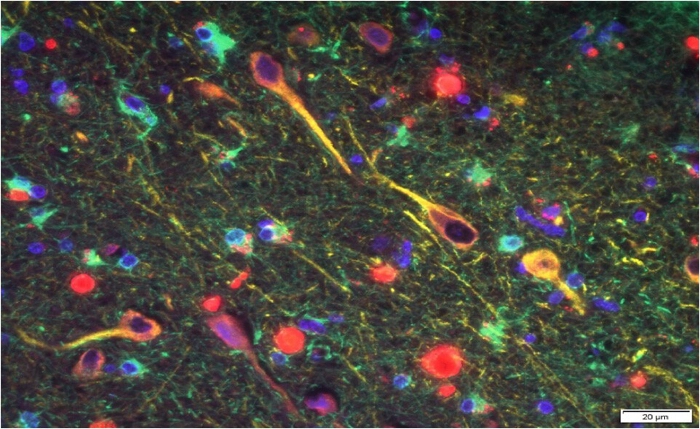Alzheimer's disease has been a degenerative neurological ailment that causes brain cells to die and the brain to deteriorate (atrophy). Alzheimer's disease represents the most prevalent form of dementia, which is defined as a progressive deterioration in cognitive, behavioral, and social abilities that impairs a person's capacity to operate independently.
Following the statistics provided by Mayo, Alzheimer's disease affects around 5.8 million individuals living in the United States aged 65 and over. Roughly 80% of those are 75 years old or older. Alzheimer's disease is expected to affect 60% to 70% of the roughly 50 million individuals globally who have dementia. The disease's early symptoms include missing recent events or discussions. An individual who has Alzheimer's will acquire significant cognitive deficits and lose the capacity to do daily chores as the disease develops.
In February 2019, scientists released data supporting the theory that Alzheimer's disease is caused by an infection with the mouth bacterium P. gingivalis. Toxins called gingipains are produced by bacteria and have been reported to develop in the brains of Alzheimer's sufferers. Gingipains damage human proteins, resulting in the well-known misfolded proteins. The researchers also created chemical molecules capable of neutralizing gingipains.
Oral Infection Resulting in Cerebral Colonization
Scientists identified the presence of Porphyromonas gingivalis - the bacterium underlying chronic periodontitis or commonly referred to as gum disease- in the brains of deceased Alzheimer's patients in a publication led by senior researcher Jan Potempa, a microbiologist from the University of Louisville.
This wasn't the first time these two characteristics were related, but the researchers took it a step further. Oral infection with the infection resulted in cerebral colonization by the bacteria, as well as increased synthesis of amyloid beta (A), the sticky proteins often associated with Alzheimer's. The study team, led by Cortexyme, a pharmaceutical business co-founded first by author Stephen Dominy, did not claim to have identified definite proof of Alzheimer's etiology.
Infectious agents have previously been linked to the onset and progress of Alzheimer's disease, but the proof of causality hasn't proven convincing, as per Dominy. For the inaugural time, researchers have substantial data linking P. gingivalis, an intracellular Gram-negative bacterium, to Alzheimer's pathogenesis.
Furthermore, the researchers discovered deadly enzymes called gingipains released by bacteria in Alzheimer's patient's brains, which corresponded with two independent indicators of the disease: the tau protein as well as a protein tag called ubiquitin. Even more intriguing, the researchers discovered similar poisonous gingipains in the brain of deceased persons who had never been diagnosed with Alzheimer's.
Although P. gingivalis, as well as the disease, have previously been connected, it's never been determined if gum disease causes Alzheimer's or even whether dementia contributes to poor dental care.

P. gingivalis' gingipains (red) among neurons in the brain of a patient with Alzheimer's. (Cortexyme)
Bacteria's Brain Invasion
The presence of modest levels of gingipains in persons who have never been diagnosed with Alzheimer's might be a smoking gun, indicating that they would have developed the disease if they had lived longer.
The discovery of gingipain antigens inside the brains of people with Alzheimer's disease and those with Alzheimer's pathology but no dementia diagnosis suggests that brain invasion with P. gingivalis isn't the result of inadequate dental care after the beginning of dementia or a late-stage illness, but rather an early occurrence that can represent the pathology identified in middle-aged people prior cognitive decline, the scientists write in their research.
Furthermore, COR388, a chemical developed by the business, demonstrated in mouse studies that it may lower the bacterial load of a preexisting P. gingivalis brain infection while also decreasing amyloid-beta formation and neuroinflammation. The people have to wait to hear what further study reveals about this connection, but the medical method is cautiously optimistic.
Drugs attacking the bacteria's toxic proteins have only shown benefit in mice thus far, but with no new dementia therapies in over 15 years, scientists must test as many strategies as possible to combat diseases like Alzheimer's, said Alzheimer's Research chief scientific officer David Reynolds in a statement.
RELATED ARTICLE: Taking Serine Supplements Increases Risk for Developing Alzheimer's Disease, Study Claims
Check out more news and information on Alzheimer's Disease in Science Times.














